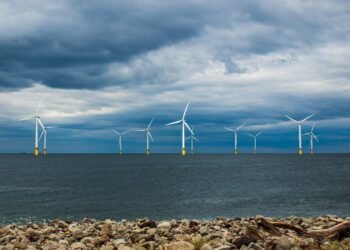Markets are designed to maximize returns, so unless sustainability is profitable, it’s questionable whether the desired outcome will materialize.
Banks are emerging as key agents in the push toward a net zero economy. With vast networks spanning industries and regions, they’re uniquely positioned to rally firms around climate goals. Their long-term ties with borrowers give them not only insight into business operations and leadership, but also the leverage to drive change.
To this end, eco-conscious shareholders have sparked optimism as they push banks toward greater involvement in green finance. The hope is that environmentally conscious fund providers or stakeholders will push firms, including banks, toward greener behavior.
How successful are eco shareholders in changing the lending practices of banks?
Often, policymakers and others hope that owners who express environmental commitments could influence banks’ lending decisions. However, we find no evidence of an association between a higher ownership stake by eco-conscious bank shareholders and shifts in banks’ loan allocation strategies between firms with low and high emissions.
Do banks actually want to be sustainable?
CE: Empirical evidence suggests that greener investments don’t necessarily pay off under current conditions, meaning banks lack an inherent incentive to pursue them. Most banks engage in sustainability initiatives because of public perception; they don’t want to be seen as neglecting environmental responsibility. But this motivation is fragile.
A clear example is how banks have reacted to recent political shifts. In the past few months, several major U.S. banks that previously committed to sustainability initiatives have now distanced themselves from them. This suggests that their previous commitments were mostly a response to outside pressure, too.
So what would it take to make green finance truly effective?
CE: Our findings suggest that market-based solutions will remain limited as long as green investments are not clearly aligned with financial returns.
To change this, we need political leadership and governments willing to implement economy-wide policies like carbon pricing, emission trading systems or targeted subsidies for green technologies.
These measures are economically efficient but politically difficult. Carbon pricing, for example, raises energy costs and often faces strong public resistance. That’s why, in practice, much of the pressure has shifted to regulators and central banks, which are expected to promote sustainable finance through disclosure mandates or green taxonomies. But this indirect strategy assumes that investors will act decisively on the information they receive, and our research shows that this assumption is flawed.
In the end, real progress on climate finance won’t come from hoping that better disclosure or shareholder sentiment will do the job. It will require coordinated political will, clear incentives and a willingness to confront the distributional consequences of climate policy. Finance can play a powerful role, but only if the broader policy environment supports it.
Read the full article by Christian Eufinger / IESE Business












